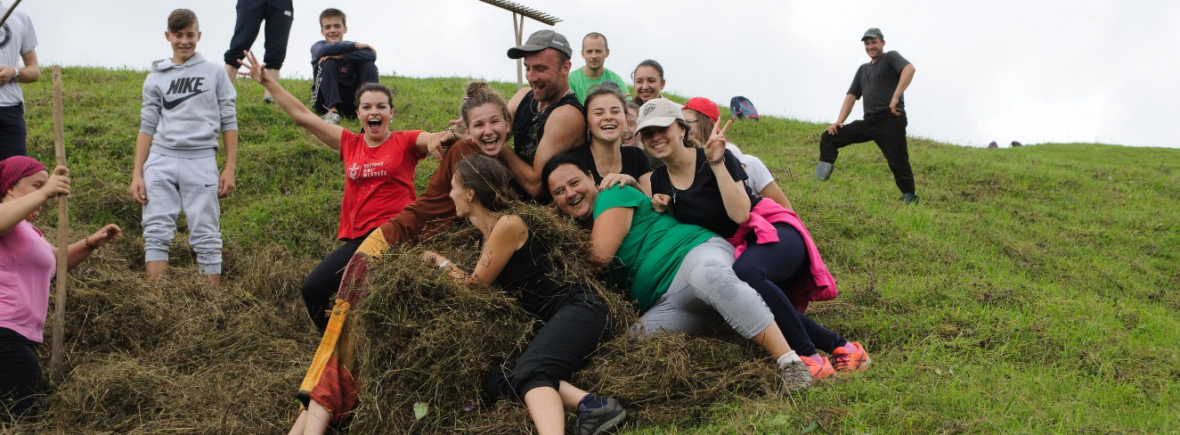By Sr. Neghesti Michael, DC
The theme of the last assembly of MISEVI in Salamanca was Disciples and Missionaries. On that occasion Father Hugh O’Donnell gave us a wonderful reflection that we need to deepen more and more.
During the Easter season the liturgy proposes that we should read, meditate and pray the precious book of the first disciples and witnesses of the risen Lord, the Acts of the Apostles. Luke, in his narration of the faith experience of the first Christian community, starts by describing their life, their faith, their dedication, their relationships, and the way they nourished their faith to be able to bring the light of the resurrection to the world.
He writes: ‘They remained faithful to the teaching of the apostles. They were attentive to the brotherhood, they were assiduous in the participation of the Eucharist and to the prayers together. Everyone was filled with respectful love and joy. As they shared faith they shared also their goods and possessions and distributed the proceeds among themselves according to what each one needed. Faith and goods shared! Each day they lived praising God gladly and generously. God gave them the power to do many signs and miracles. The Lord blessed their community by adding new members who wanted to follow Jesus.’ (Acts 2, 42-47)
The community of the believers and the apostles who were transformed by the Holy Spirit were an open book to any one they met on the road. They admitted their fragile condition as sinners, but believed that God used them for his purposes. We see Paul narrating more than once his history of being both a sinner and a graced man of God. We see Peter full of joy and energy, witnessing with joy and courage, in the face of opposition and imprisonment. We learn from Stephen the joy of martyrdom for the kingdom of God. These first disciples travelled into dangerous places and crossed geographical, cultural and religious borders to bring the Good News, at the risk of their own lives.

I could continue to highlight more elements of this cornerstone of the life of the first Christians. In our daily and ordinary lives, we need to re-read and re-write our own history, based on the book of the Acts of the Apostles and just now we have the whole month to read and meditate on these first missionary disciples, as we prepare for Pentecost.
For our reflection, I would like to highlight three elements that characterized the life of the first disciples: joy; communion and sharing; readiness to go to bring the good news.
Joy
The striking characteristic of the disciples was their joy at being disciples. What made them happy was their identity; being followers of Jesus was the deep motivation of their joy. Pope Francis is encouraging us all to rediscover our joy. His first apostolic letter that set out the program of His Pontificate was entitled ‘The Joy of the Gospel’. His other exhortations – ‘Laetare et Gaudete’, ‘Laudato Si’, ‘Amoris Laetitia’ and the last one, ‘Christus Vivit’, are each a call to renewed joy in our Christian vocation.
To live in happiness and serenity in the midst of our daily life is sometimes challenging. From the earliest days, St Vincent taught us to offer all our daily activities to God during our meditation and to rely on him.
When I think of relying joyfully on God I have a memory that always comes to my mind of a man who was travelling with his luggage in a carriage led by a horse. Since the horse was thin and tired, when they reached a slippery road, the man took his luggage and he put on his own shoulders in the carriage. When he was asked why, he said he had pity on the horse and he wanted to help it. But as a matter of fact, all the load was still on the horse’s back!
This anecdote always reminds me that I need to put my confidence in God fully. That is the source of joy. Whoever places his confidence in God never runs out of joy. A disciple who has this confidence is full of joy and serenity and ready to share with those who need it. Vincentian joy is also based on making others joyful:
‘Another effect of charity is to rejoice with those who rejoice. It causes us to enter into their joy. Our Lord intended by His teachings to unite us in one mind in joy as well as in sorrow; it’s His desire that we share one another’s feelings. Saint John’s Gospel relates that the blessed Precursor said, speaking of himself and of Jesus Christ, that the Bridegroom’s friend is very happy to hear his voice. ‘My joy,’ he said, ‘is complete; he must increase and I must decrease.’ In the same way, let’s rejoice when we hear the voice of our neighbor who rejoices, for he represents Our Lord to us; let’s rejoice at his successes, happy that he surpasses us in the honor and esteem of the world, in talent, grace, and virtue. That’s how we should share his feelings of joy.’ (St Vincent, Correspondence, Writings and Documents, Volume 12 page 222)
Communion and Sharing
Communion is one of the distinctive characteristics of the first Christian community. In our Vincentian way of living the Gospel since the early days of our foundation, communion and charity go together. We are missionaries together with others. Vincent was able to create networks of charity because he was able to put many hands and minds together in mutual cooperation. As the Logo of Misevi indicates, all our dreams are realized in a communion of world-wide dimensions. At the same time, communion among the members who live side by side is vital. Communion grows by means of praying, sharing, planning for the poor and with the poor.
Sharing their faith characterized the disciples of Jesus. When Peter found himself in the entrance of the temple and a man begged him to give him something, he said: ‘We do not have silver nor gold, but we give you what we do have. In the name of Jesus get up….’ (Acts 3:6)
Readiness to go to bring the good news
Readiness to go to bring the good news that characterizes the Apostles also characterizes the Vincentian. St Vincent exhorted his missionaries: ‘…we are to run to the spiritual needs of our neighbors as if we were running to a fire.’(Recommendation given at a chapter. Correspondents vol 11, page 25)
‘So, our vocation is to go, not just to one parish, not just to one diocese, but all over the world; and to do what? To set people’s hearts on fire; to do what the Son of God did. He came to set the world on fire in order to inflame it with His love. What do we have to desire but that it may burn and consume everything. My dear confreres, let’s reflect on that, please. It’s true then, that I’m sent not only to love God but to make Him loved. It’s not enough for me to love God, if my neighbor doesn’t love Him. I have to love my neighbor as the image of God and the object of His love, and to act in such a way that people, in their turn, love their Creator, who knows them and acknowledges them as His brothers, whom He has saved, and that by mutual charity they love one another for love of God, who has loved them so much as to hand over His own Son to death for them.’ (St Vincent, Correspondence, Writings and Documents, Volume 12 page 215)
As Vincentians it is our charism to read the signs of times in the sense of looking for the places where there are the greatest needs of those who are poor. The Church is calling us to open our eyes to the poorest people of our time, and we do not need sophisticated research to see them. It is enough to open the door of our hears and we will easily find them.

Photo of the International MISEVI team. Sr. Neghesti Michael is in the front row, second from left.

